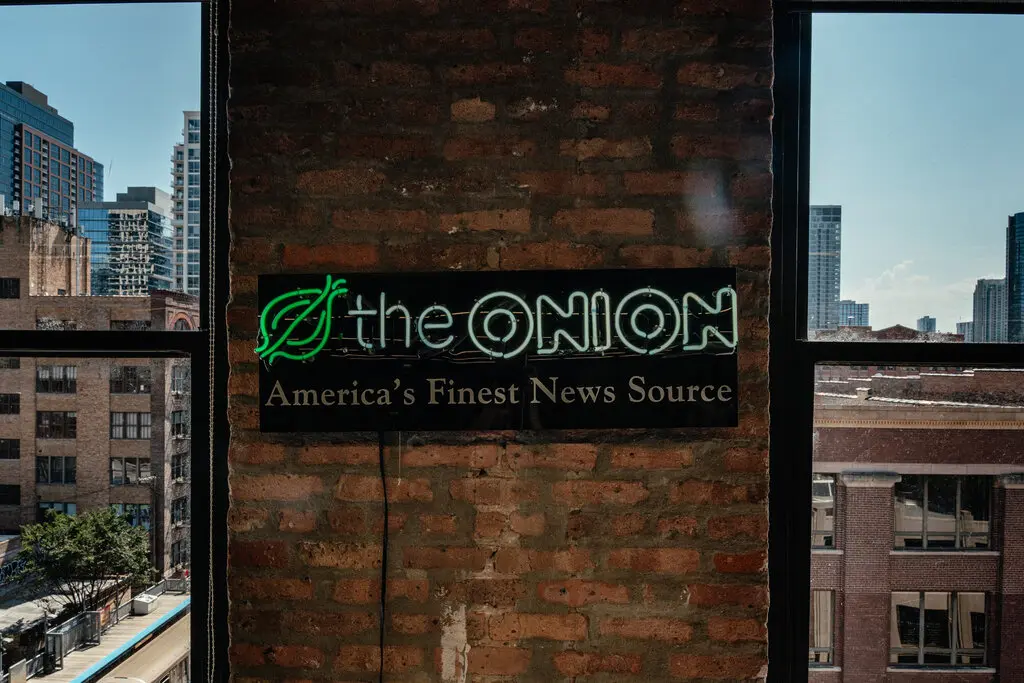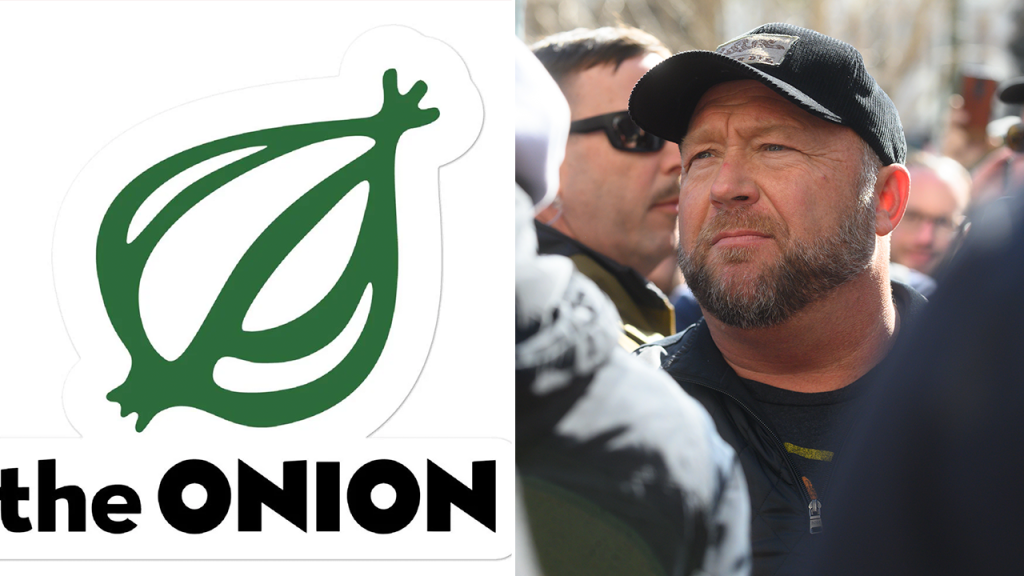Judge Rejects Sale of Infowars to The Onion

In a surprising legal twist, a judge has rejected the proposed sale of Infowars, the controversial media company founded by conspiracy theorist Alex Jones, to The Onion, a satirical news outlet known for its humorous and absurd take on current events. The decision has sent shockwaves through the media landscape, with many questioning the future of Infowars, Jones’s controversial platform, and the potential implications for satire and media consolidation.
The proposed sale was presented earlier this year as a potential solution to Infowars’ ongoing financial difficulties, which have been exacerbated by multiple lawsuits and the fallout from the spread of false information related to major tragedies, such as the Sandy Hook Elementary School shooting. For years, Jones and Infowars have been at the center of various legal battles, resulting in hefty financial penalties, loss of advertisers, and a decline in their media presence. The sale to The Onion seemed like a logical next step, with both parties apparently hoping to benefit from each other’s media brand and audience.
However, the judge’s decision to reject the deal has raised eyebrows and left many wondering why the proposal was blocked, especially since The Onion is known for its comedic approach and parody-style news, which seems at odds with the serious legal and financial issues facing Infowars. The court’s ruling has shed light on the complexities of media acquisitions, the limits of satire in real-world contexts, and the responsibility of media organizations to manage their brand image and public perception.
The Infowars Controversy
Infowars has long been known for promoting fringe conspiracy theories, with Alex Jones at the helm pushing narratives about government cover-ups, false flag operations, and other unverified claims. One of the most damaging controversies surrounding Infowars was its false reporting about the Sandy Hook Elementary School massacre in 2012. Jones repeatedly claimed that the shooting, which killed 26 people, was a hoax staged by the government to promote gun control. These baseless allegations led to significant emotional and financial harm for the families of the victims, resulting in lawsuits against Jones and Infowars.
In addition to the Sandy Hook lawsuits, Infowars has faced backlash for promoting other misleading and harmful conspiracy theories, which has resulted in the platform being banned from major social media sites such as Facebook, YouTube, and Twitter. The public perception of Infowars has become increasingly negative, with many questioning the ethical responsibilities of the platform and its role in spreading misinformation. Despite the legal and financial challenges, Infowars remained a popular outlet among its supporters, who believe Jones’s rhetoric aligns with their own views on government control, media manipulation, and free speech.
The Onion’s Role
The Onion, in contrast, is a well-known satirical news outlet that has been in operation since 1988. Known for its comedic stories that parody current events and public figures, The Onion has built a reputation for humorously critiquing everything from politics to social issues. Despite the differences in tone and purpose, The Onion has managed to develop a loyal following, similar to Infowars, albeit through satire rather than conspiracy theories.
In recent years, The Onion has expanded its reach beyond its traditional satirical content to include more mainstream news articles and social media commentary. This shift in strategy has made it an increasingly significant player in the media landscape, drawing both praise and criticism for its humorous approach to important topics. However, the idea of The Onion acquiring Infowars was seen by many as an odd and somewhat ironic pairing, given the stark contrast between the two outlets’ missions.
The proposed sale was seen by some as an attempt by The Onion to increase its market share, while Infowars hoped to secure a stable financial future amid its legal troubles. A merger or acquisition would have allowed The Onion to absorb Infowars’ substantial audience while simultaneously taking on the challenges associated with Jones’s controversial legacy.
Judge’s Ruling
The court’s rejection of the sale has left many questions unanswered. The judge did not provide a clear explanation for the decision, but legal analysts suggest that concerns over the potential blending of satire and conspiracy-driven content may have played a role in the ruling. Some believe the judge was worried that such a merger could blur the lines between legitimate media and comedic content, raising concerns about the ethical implications of blending two vastly different types of media—one known for spreading unfounded claims and the other for humorously critiquing them.
The judge’s ruling also brings attention to the broader issue of media consolidation, which has become an increasingly debated topic in recent years. With large corporations acquiring smaller, niche media outlets, critics argue that such consolidations undermine journalistic integrity and contribute to the spread of misinformation. In this context, the decision to block the sale may reflect growing concerns over the influence of such media platforms and the impact they have on public discourse.
Reactions to the Ruling
Following the court’s rejection, reactions from both The Onion and Infowars have been mixed. The Onion, in a statement, expressed disappointment at the ruling but emphasized that it would continue to explore opportunities for growth and expansion. The satire site maintained that it had no intention of compromising its comedic voice, regardless of whether or not the acquisition had gone through.
Meanwhile, Alex Jones and his team at Infowars have expressed frustration at the decision, claiming that the sale would have provided the platform with much-needed financial relief and the opportunity to reach a broader audience. Jones has maintained that his content is protected by the First Amendment, and he has repeatedly criticized mainstream media outlets for censoring and silencing dissenting voices.
Both parties have suggested that they will continue to explore alternative options for Infowars’ future, though it remains unclear what direction the platform will take next. Jones has faced multiple financial setbacks, and Infowars has struggled to maintain its relevance in the media landscape, especially as its credibility continues to be questioned in the wake of legal battles.
The Bigger Picture
The court’s decision to block the sale of Infowars to The Onion highlights important questions about the future of media in the age of misinformation and satire. While The Onion is widely regarded as a satirical outlet, the intersection of satire and real-world politics has increasingly become a topic of debate, especially in light of the growing influence of media platforms that promote conspiracy theories and false narratives. The challenge, moving forward, will be finding ways to manage the role of media in shaping public opinion and ensuring that content remains ethical, transparent, and responsible.
As both Infowars and The Onion continue to navigate the complexities of the media landscape, the implications of this court ruling may reverberate far beyond the proposed sale itself. The evolving nature of media, humor, and truth in the digital age requires careful consideration of the role that each outlet plays in the broader ecosystem, and how they influence the public’s understanding of the world around them. The rejection of the sale serves as a reminder that the lines between satire, truth, and conspiracy are increasingly difficult to define, and how these boundaries are handled will shape the future of media in profound ways.






